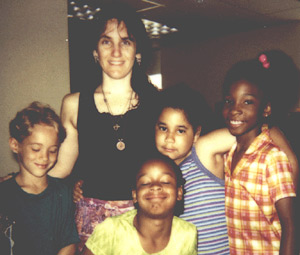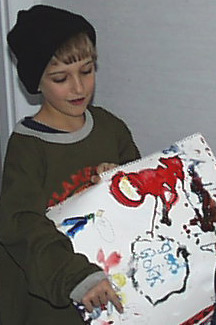
"Most of the children with whom I work have already been subject to a wide range of standard psychological tests: in essence, they've been 'tested to death'. By contrast, I try to make my time with them as far from 'clinical' as possible, using informal assessment tools, usually in a dialogue or observational format in a one-on-one environment, that build upon previously-established psychological assessments. My aim is to establish a child's strengths, weaknesses, and areas of compensation within a learning environment: not so much 'reinventing the wheel', but refining it."
For more specific examples of my assessment techniques: I use the Dunn and Dunn model , for its in-depth approach to issues of learning style; the Myers-Briggs Type Indicator model (aka 'People Types and Tiger Stripes') as applied to educational settings; and the Howard Gardner Multiple Intelligence Theory model as a means of exploring generally unmeasured areas of skill and talent. My approach towards applying these models is to avoid formal testing, but to make assessments through dialogue and metacognitive discussion: that is, by asking 'what are you thinking? How do you see it? Do you hear it?' and so on.

As far as psychological and academic assessment, I generally look at any
existing assessments made by psychologists and the IEPs. I review the
information in the documents with the young person (obviously with
discretion), asking questions about the strategies they use towards
learning and completing tasks, and about the circumstances under which
they might have been able to perform differently: 'what was easy...
why... how did you figure this out... if it had been read to you, if you
had more time, if it had been done first... in what situations is this
easy or hard, you could draw it first...' Of course, many established
assessment techniques are undertaken with very different priorities than
simply allowing young people to do their best, so I prefer to use any
previous assessments simply as an introduction: an opportunity to get to
know each child, and to show that I respect them enough not to assume
everything someone else said is accurate.
Next story:
Camp Sydney - Activity-based intensive learning sessions
Back to 'For Professionals' index
